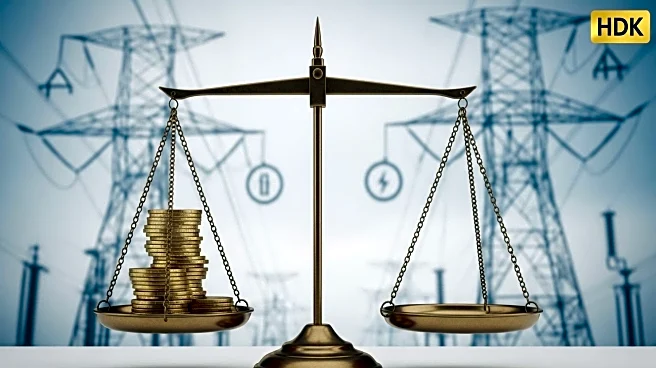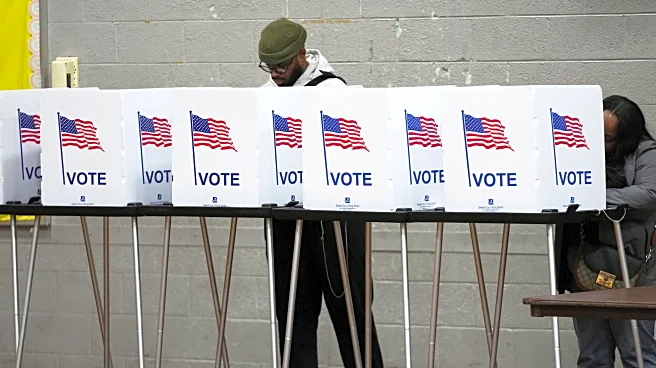What's Happening?
The Indiana Office of Utility Consumer Counselor (OUCC) has recommended that state regulators deny AES Indiana's request for a $193 million base rate increase. Instead, the OUCC proposes a $21 million reduction in current rates. This recommendation follows a three-month review of testimony and exhibits related to the case, which is currently before the Indiana Utility Regulatory Commission (IURC). The OUCC's analysis suggests that AES has not provided sufficient evidence to justify the rate hike, especially considering the utility's recent approval for a rate increase less than 14 months ago. The OUCC has also proposed several adjustments, including reducing AES's monthly customer service charge from $17 to $11.25, cutting the authorized return on equity from 9.9% to 8.5%, and eliminating over 100 'phantom hires' in AES's budget.
Why It's Important?
The OUCC's recommendation is significant as it highlights concerns over affordability and the financial burden on ratepayers. If AES's proposed rate increase is denied, it could lead to lower utility costs for consumers, addressing the hardships many customers are currently facing. The decision also underscores the importance of regulatory oversight in ensuring that utility companies do not prioritize shareholder returns over customer affordability. The large number of public comments and complaints received by the OUCC further emphasize the widespread dissatisfaction with AES's service and billing practices, which could influence the IURC's final decision.
What's Next?
AES Indiana is expected to file its rebuttal testimony by October 7, after which an evidentiary hearing is scheduled to begin on November 3. The IURC will review the case and is anticipated to issue a final order in the spring. Stakeholders, including consumer advocacy groups like the Citizens Action Coalition, are likely to continue their efforts to ensure that residential ratepayers are protected from unaffordable rates and poor service.
Beyond the Headlines
The case against AES Indiana raises broader questions about the accountability of utility companies and the effectiveness of regulatory bodies in safeguarding consumer interests. The high volume of complaints and public opposition may prompt further scrutiny of AES's operational practices and customer service standards, potentially leading to long-term changes in how utility companies are regulated in Indiana.










